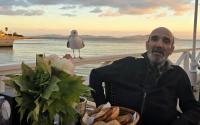February 14 2008.
A week after the Archbishop of Canterbury dared to float the idea that some role for Islamic arbitration could be recognised in British law, the anti-Muslim backlash grinds on. Never mind that Rowan Williams's proposal was hedged with qualifications, that elements of sharia already have legal status, that he used the existing practice of orthodox Jewish courts as a model, and insisted such an accommodation could not override equal legal rights for all, notably women. The media and political reaction has been hysterical and ugly: from the Sun's declaration that Williams had "handed al-Qaida a victory", to the Express claim that he had "surrendered to fanatics", to the endless replays of floggings in western-backed states like Saudi Arabia.
It was still going strong yesterday, as Daily Mail columnist Melanie Phillips insisted the archbishop had weakened Britain against the "Islamist enemy" and the Telegraph reported the Queen was "distressed". As well she might be. What has been demonstrated in the past week, as Williams should have realised, is that serious debate about equal rights for Muslims or integration as a two-way process is becoming impossible in an atmosphere of growing Islamophobic intolerance. Hardly had the Williams furore kicked off than the minister Phil Woolas had triggered headlines about a "Muslim inbreeding row" with remarks about the health risks of cousin marriages among Pakistanis - a practice traditionally favoured by British monarchs.
It's hardly surprising that in a climate in which denouncing "Islamists" has become the polite way to attack Muslims, and a literary figure such as Martin Amis can rant about the threat to Europe from the Muslim birthrate and still be treated with respect, public opinion has become inflamed. When politicians and newspapers denounce "preachers of hate", it increasingly sounds as though they're talking about themselves. Muslims, meanwhile, inevitably feel beleaguered and, far from spurring integration, the relentless attacks - fuelled by the need to justify war in the Muslim world - heighten alienation.
They also undermine efforts to prevent further atrocities in Britain. Last week, as the archbishop's sharia storm raged, Gordon Brown banned the leading Islamic cleric Sheikh Yusuf al-Qaradawi from the country. The pretext given was his support for Palestinian suicide attacks during the intifada. But the 81-year-old scholar has been to Britain several times since then - in fact he was encouraged to come by the government after the Iraq invasion because of his opposition to al-Qaida. The real reason for the ban, apart from the competition to appear tough on terror, is his links with the Muslim Brotherhood, the most influential Islamist organisation in the Arab world - but also a particular target for liberal hawks and neoconservatives. They have played a key role in convincing the government to end its engagement with mainstream Islamist groups and sponsor more pliant Muslim bodies.
One man who thinks that's not just bad for community relations but actually a threat to Britain's security, is Detective Inspector Bob Lambert, who retired six weeks ago as head of the Metropolitan police special branch's Muslim Contact Unit. With more than a quarter century at the sharp end of counter-terrorism operations, Lambert is scarcely a bleeding-heart liberal. But he has been unable to speak out publicly until now and is deeply frustrated by the Qaradawi ban. "Qaradawi is clearly useful in countering al-Qaida propaganda", Lambert told me this week. "He is held in high esteem: how can we think meaningfully about enlisting credible Muslim community support against al-Qaida if we're not prepared to engage constructively with the likes of Qaradawi?"
The aim of the Muslim Contact Unit, set up in 2002, was to avoid the mistakes made during the IRA campaign of alienating the Irish community, and to work with credible Muslim figures to isolate and counter those prepared to support terror attacks. Lambert points as an example to the crucial role played by prominent Islamist activists, such as the British Muslim Initiative leader Azzam Tamimi, in taking back Finsbury Park mosque in 2005 from supporters of Abu Hamza, now awaiting extradition to the US on terrorism charges.
"The government approach is increasingly to lump all Islamist groups together", the special branch veteran says. "But Islamists can be powerful allies in the fight against al-Qaida influence. Our experience shows they can be the levers that help get young people away from the most dangerous positions. Issues that are most troubling to people like the oppression of women and gays mustn't be swept under the carpet, but they also shouldn't be treated as a block on engagement."
Lambert also highlights the importance of Islamic activists' cooperation with the anti-war movement and radical MPs such as Jeremy Corbyn and George Galloway in offering Muslim youth a way to channel their political grievances into peaceful political action. This isn't about "political correctness or deference to Islamist thinking," he insists, "it's a genuine issue of London's safety". Groups now promoted by the government, such as the Sufi Muslim Council, may have their role, but from the perspective of countering terrorism they have "neither religious nor political credibility. Let's be clear who it is that can keep London safe in the runup to the Olympic games".
Given such a challenge to official orthodoxy there has been opposition to the Muslim Contact Unit's approach in both the police and government - and reportedly pressure for it to be wound down or disbanded. Its work has been singled out for attack by Dean Godson, research director of Policy Exchange, the Tory-linked thinktank whose recent research on extremist literature in British mosques was found to have been based on faked material. The unit has, Godson argued, been suffering from "ideological Stockholm syndrome".
In fact, it clearly benefits from the common sense that comes from dealing with the reality of terror on the ground, rather than a blinkered denial of its link with western aggression in the Middle East and beyond. The best way to reduce the threat of attack at home is for Britain to end its disastrous interventions in the Muslim world - though to judge by the foreign secretary David Miliband's new enthusiasm for liberal interventionism, that's not going to happen soon. In the meantime, we need to listen to people who know what they're talking about, like Bob Lambert.






